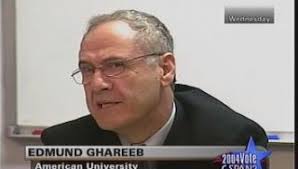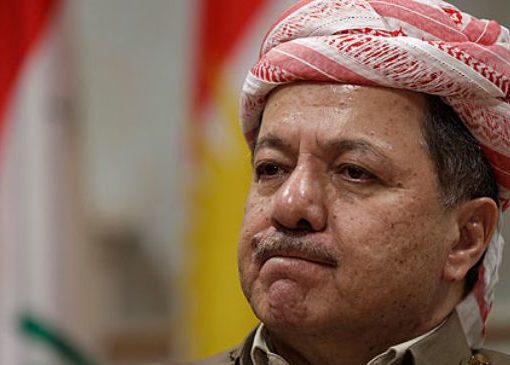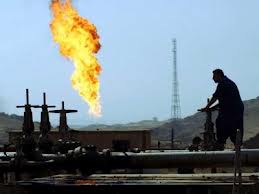
The emergence of an independent Kurdish state will continue to face serious hurdles and obstacles.
Sheikh Ubaydullah al-Nahri, a prominent religious and tribal leader who is known as the grandfather of Kurdish nationalism, in 1880 established the Kurdish League, an alliance of 200 tribes, and launched a revolt in the Ottoman-Persian border area. He wrote letters to the tsar of Russia and the British government seeking help to establish a Kurdish state, arguing that Kurds were a separate people oppressed by the Turks and Persians.
His revolt united the two rival empires that crushed his movement. His tribal allies abandoned him because, while they respected his religious leadership, they did not share his nationalist beliefs.
The Kurdish issue has found its way back into the headlines in recent years as a result of the wars in Iraq and the conflict between Turkey’s Kurdistan Workers’ Party (PKK) and the Turkish government. More recently the assault by the Islamic State (ISIS) in northern Iraq and in Syria has led to US military involvement against ISIS and to more media coverage.
Kurdistan Regional Government (KRG) President Masoud Barzani announced a referendum, asking Iraqi Kurds to vote on an independent state.
Today, with Iraq and Syria facing terrorism and proxy wars, the establishment of a Kurdish state could be a major development emerging from the regional chaos. Such a development could have long-term consequences for the Kurds, their neighbours and beyond. As always, there are great opportunities and serious dangers.
Barzani has turned down calls from Washington, Baghdad, Ankara, Tehran and many other countries to cancel or delay the vote. Baghdad said the referendum is illegal. Its neighbours with large Kurdish populations see it as a threat to their stability and Washington and some of its allies see it as diverting attention from the war on ISIS.
It was not clear whether Barzani would move towards independence if most Kurds vote for it as expected or whether he plans to use the vote to strengthen his bargaining power with Baghdad and neighbouring countries.
Among the factors favouring the creation of a Kurdish state is the Iraqi Kurds’ historic ability to create institutions, effectively administer their region and develop it. They have shown political acumen. In the past, internal divisions and overplaying their hand were disastrous for Kurdish aspirations. Some of the divisions remain apparent today but many experts said a clear majority will support independence.
Attracted by the region’s stability, foreign investors have flocked to the area. The economy, relative to the rest of Iraq, appears to be thriving. The weakening of the Iraqi state and ongoing sectarian conflicts in Arab Iraq and other changes on the ground have presented the Kurds with a great opportunity to fulfil their dream of independence.
They were also able to maintain friendly ties with their neighbours, especially Turkey and Iran, which historically viewed the idea of Kurdish statehood with suspicion and hostility. The KRG has reached out to governments and businesses outside the region.
Public opinion polls indicate that most Iraqi Kurds favour self-determination. Most Kurds appear to have adopted a strong nationalist identity while many of their neighbours are reverting to older religious, sectarian, regional and tribal affiliations.
Supporters of independence argue that the presence of “reformist” governments in Turkey and Iran and the geo-political developments in Syria and Iraq favour their argument. Turkey, some argue, needs to diversify its energy resources and is supporting Kurdish exploration and export efforts. Its economic and geopolitical interests will require its acceptance if not its support of the idea of a Kurdish state.
Some argue that the international political environment is sympathetic to Kurdish aspirations. If the Kurds maintain peace and stability in their own region, they said, the United States might be consider recognising their independence.
Many Kurds and Americans argue that the Kurds are potentially the most reliable US allies and partners in the region. Kurds say that, if they control the oil and gas resources of the Kurdish territories, Kirkuk and the disputed areas, they will have an economically self-sufficient and viable state. The KRG was exporting, via Turkey, 200,000-300,000 barrels of oil a day.
There are some in Baghdad who say, “Let the Kurds go their way if that is their wish” but they cannot take Kirkuk and other disputed areas in Diyala and Nineveh provinces. These areas, they argue, are not part of the historical Iraqi Kurdistan and include many other ethnic groups such as the Turkmen and Arabs who do not share the Kurds’ nationalist aspirations.
The emergence of an independent Kurdish state will continue to face serious hurdles and obstacles. There is the problem of its neighbours. The Kurds live in a very rough neighbourhood. Iran and Turkey have much larger Kurdish populations than Iraq and, being concerned about their own territorial integrity, are not likely to support such a state unless they can control it.
A Kurdish state would embolden their own Kurds and encourage them to seek independence or a federal arrangement. Kurds in those countries would say: “If 5 million of our brothers and sisters in Iraq can have a state of their own, why couldn’t 20 million-23 million Turkish Kurds and 10 million-11 million Iranian Kurds have their own state?”
Some experts say that such an outcome is likely to lead to more violence between Arabs and Kurds, Turkmen and Kurds and Sunnis and Shias. If the Kurds retain control over Kirkuk and the rich oil and gas field in the disputed areas, this would mean that the Sunni area would be energy poor. It would be highly unlikely that they would accept such an outcome.
In addition, there will be battles over borders, water and other resources, leading to much bloodletting, ethnic cleansing and further interference by foreign fighters.
Furthermore, the Kurdish state will be landlocked and forced to rely on Turkey or Iran for exports and imports, which is likely to increase its dependence on these states.
In addition, the Kurds hope to receive international support, especially from the United States, whose policies have strengthened Kurdish autonomy. Yet while the United States supported a weak and decentralised Iraq, it still favours a unified federal Iraq. If Iraq breaks up, the threats multiply, endangering regional allies and Europeans ones as well. US interests are likely to be affected. The United States appears to be trying to get the Kurds, the Shias and the Sunnis to maintain the unity of Iraq while giving a great deal of autonomy to the various communities.
Kurdish history has shown that, while nationalist sentiments, common characteristics and aspirations are strong among Kurds in neighbouring countries, cooperation will be more difficult to achieve than it is in one country. The Kurds are not only separated by borders but by the complex influences to which they have been subjected to after living so long in different countries.
During a recent conversation, a prominent Kurdish leader admitted that while “I dream of independence and believe that we, like any other nation, have the right to a state of our own, I am not sure this is our best option at this time. It may be better for us to reach an agreement with Baghdad where we hold strong cards than coming under the tutelage of Turkey or Iran.
“The least bad option may come from an agreement reached between Iraqi Arabs and Iraqi Kurds in a spirit of dialogue and understanding and not as an imposed solution. This agreement, however, must recognise our rights and international guarantees might help to ensure its success but we have to keep our options open, including our right to self-determination.”
In the end, the Kurdish genie is out of the bottle and no one is going to be able to put it back. The Kurdish issue is likely to remain one of the major one facing the region in the 21st century.
(*) Edmund Ghareeb is an academic and an expert on Middle Eastern affairs and on US relations with the region
Source: The Arab Weekly, 24. September 2017
http://www.thearabweekly.com/Debate/9288/A-Kurdish-state%3A-Reality-or-utopia%3F







Comment here